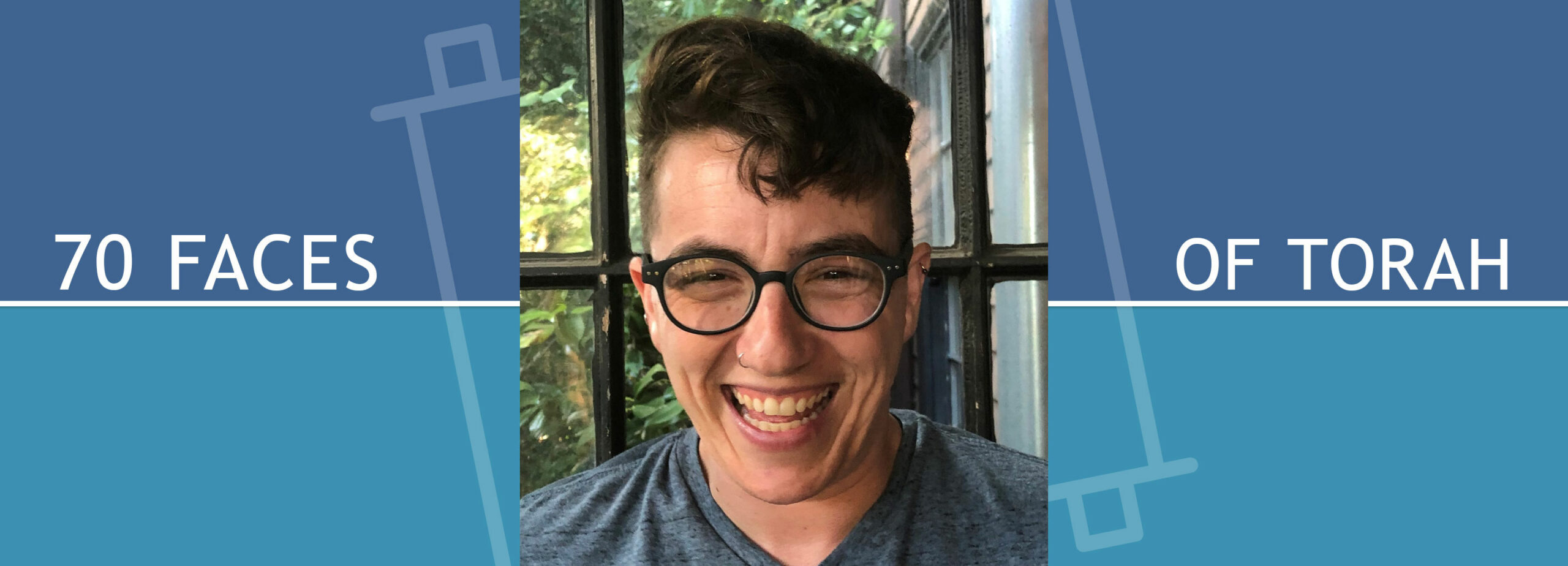Leviticus Reading, Healing & Remembering

Parshat Acharei Mot (Leviticus 16:1–18:30)
Parshat Acharei Mot, in all honesty, evokes a reaction along the lines of, “Ugh, are we still reading this? Aren’t we healed from this already? Can we skip it this year?” It opens with the fallout from the dramatic, public deaths of Aaron’s sons and closes with a list of all of the forbidden sexual practices, including the particularly dicey Leviticus 18:22, “Do not lie with a male as one lies with a woman; it is an abhorrence.”
Whenever I encounter Leviticus 18:22, each spring in Acharei Mot and each fall in the Yom Kippur afternoon Torah reading, I make a point of returning to the 8th chapter of Sanhedrin, a section of the Talmud that guides me in encountering texts which carry legacies of violence, pain, and exclusion.
This chapter in Sanhedrin deals with another violent—dare I say abhorrent— instruction in the Torah: the stoning of the Ben Sorer u’Moreh, the stubborn and rebellious son, before he can cause harm (Deuteronomy 21:18). The Torah explains, “Thus you will sweep out evil from your midst: all Israel will hear and be afraid.” (Deuteronomy 21:21)
This type of anticipatory punishment feels deeply unsettling. Who are we to pre-judge the outcome of a person’s life? And, frankly, I personally hold those deemed “stubborn and rebellious” in high regard—as someone once said, “Well-behaved women rarely make history.”
Fortunately, in the case of the Ben Sorer u’Moreh, the early Rabbis shared my discomfort. Over the course of a few pages—which is very long in the Talmud—the Rabbis take this injunction and render it completely toothless.
Through what I affectionately call Rabbinic gymnastics—their creative and innovative system of interpreting Torah—they limit the possibilities of who could be legally considered a Ben Sorer u’Moreh until it becomes a legal impossibility. For just one absurd example, they say that in order for the parents’ claim to be considered in court, their voices must sound identical to each other and the claim must be spoken in unison.
It’s pretty cool to see the Rabbis transform this violent commandment into something bordering on farce.
But an obvious question remains: If the Torah is from God, but the Rabbis are right in eradicating this practice, why would God include problematic texts in the Torah to begin with?
And the answer: דרוש וקבל שכר drosh v’kabel shar—expound, explain, give a drash on it, and receive reward.
Which is to say, this commandment to stone the stubborn and rebellious son only exists as an opportunity to use our God-given tools of interpretation to make it disappear.
I take this charge to heart: parts of Acharei Mot are among the verses in the Torah that are ripe for us all to explain away and be rewarded. Leviticus 18:22 is one more example of unjust systems and values waiting for the Ben Sorer u’Moreh treatment.
This charge is not so simple, though. As we continue to see “Don’t Say Gay” bills and the criminalization of gender-affirming care become law in this country, it feels naive to look at this violent verse as a merely theoretical rhetorical device.
And, again, I find my objection raised by the Rabbis with regard to the Ben Sorer u’Moreh. At the end of their discussion of it, Rabbi Yonatan speaks up and says: אני ראיתיו וישבתי על קברו ani ra’itiv v’yashavti al kivaro—I have seen him and I have sat on his grave.”
In other words, Rabbi Yonatan protests: with all due respect to your powers of interpretation, my fellow Rabbis, we have enacted this violence—I have seen it happen.
A particularly poignant detail about this that I learned from my teacher, Rabbi Benay Lappe, is that Rabbi Yonatan is a Kohen, a priest. Kohanim are forbidden from entering graveyards for anyone outside of their immediate family. Which is to say, if Rabbi Yonatan sat on his grave, the grave had to have belonged to his own son, or brother.
I often feel inclined to stop telling the story at דרוש וקבל שכר—“expound and receive your reward”—it’s more optimistic. But as we are destined to continue reading Leviticus 18 each year, and as we are still mired in the struggle to build a world where people are free to love who and how they choose, we also need to lift up Rabbi Yonatan’s voice. His voice represents the ones who witnessed the suffering these words caused and who carry the memory of those who were harmed before the Rabbis’ interpretation became Torah.
I offer Sanhedrin chapter 8 as a guidepost—here is one way to continue to engage with Torah even when it is harmful. May we all hope, pray, and work for a future where Leviticus 18 and its heteropatriarchal prohibitions are as obsolete as the instruction to stone stubborn and rebellious children.
And, as Rabbi Yonatan reminds us, may we continue to do the work on the ground to redress this harm, to honor the memories of those lost in the fight, and not let ourselves off the hook until our rhetoric and our actions are aligned.
Frankie Sandmel (they, them, their) is a student at the Rabbinical School of Hebrew College in Newton Centre, MA.

